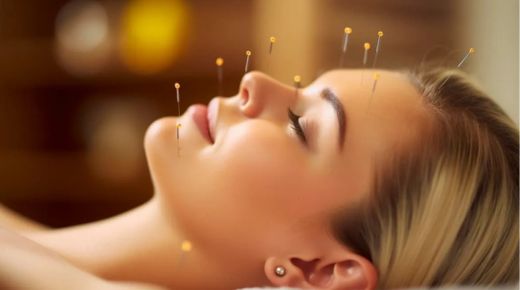Allergies can disrupt daily life with sneezing, itching, and fatigue. Many people seek natural ways to find relief. Acupuncture offers a gentle approach to ease allergy symptoms. It’s an ancient practice that balances the body’s energy. Used for various issues—from stress to sports injuries new york—it may also help with allergies. Let’s explore how acupuncture could be a path to comfort.
Understanding Allergies and Their Impact
Allergies occur when the immune system reacts to substances like pollen, dust, or pet dander. This triggers symptoms such as sneezing, itching, and congestion. Over-the-counter medications can help, but they often come with side effects. Natural methods like acupuncture provide an alternative for those seeking a more holistic approach.
What Is Acupuncture?
Acupuncture is a traditional Chinese medicine practice used for thousands of years. It involves inserting thin needles into specific points on the body. This helps restore the flow of energy, or “Qi,” which promotes healing and balance. The practice is known for addressing various ailments, including pain management and stress reduction.
How Acupuncture Helps with Allergies
Research suggests that acupuncture can help reduce allergy symptoms. It may work by regulating the immune system and reducing inflammation. The precise needle placement helps increase blood circulation and release natural painkillers in the body.
According to a study by the National Center for Complementary and Integrative Health, acupuncture may offer relief for some patients by reducing the production of histamines, which cause allergic reactions.
Acupuncture vs. Conventional Treatments
Acupuncture offers a distinct approach compared to traditional allergy treatments. Here’s a quick comparison:
| Aspect | Acupuncture | Conventional Treatments |
| Method | Needle insertion at specific points | Antihistamines or nasal sprays |
| Side Effects | Minimal when performed by a professional | Possible drowsiness, dizziness |
| Focus | Balances body energy and immune response | Targets symptom relief |
Finding a Qualified Practitioner
When considering acupuncture, it’s vital to find a qualified practitioner. Look for professionals certified by national boards. In the U.S., the National Certification Commission for Acupuncture and Oriental Medicine provides accreditation to ensure safe practices.
Preparing for Your Acupuncture Session
Before your session, stay hydrated and wear comfortable clothing. Communicate with your practitioner about your symptoms and concerns. During the session, you might feel a slight tingling as the needles are inserted, but it should not be painful.
What to Expect Post-Treatment
After acupuncture, many people feel relaxed and energized. Some notice immediate relief, while others may require several sessions for the best results. It’s crucial to maintain regular care and follow any lifestyle recommendations from your practitioner.
Conclusion: Is Acupuncture Right for You?
Acupuncture could be a promising option for those seeking natural allergy relief. It provides a holistic way to manage symptoms and improve overall well-being. Consult with a healthcare provider to determine if acupuncture aligns with your health needs.
Exploring alternative treatments can be empowering. Acupuncture offers a unique path to managing allergies with minimal side effects. With careful consideration and professional guidance, it might just be the relief you’ve been looking for.




